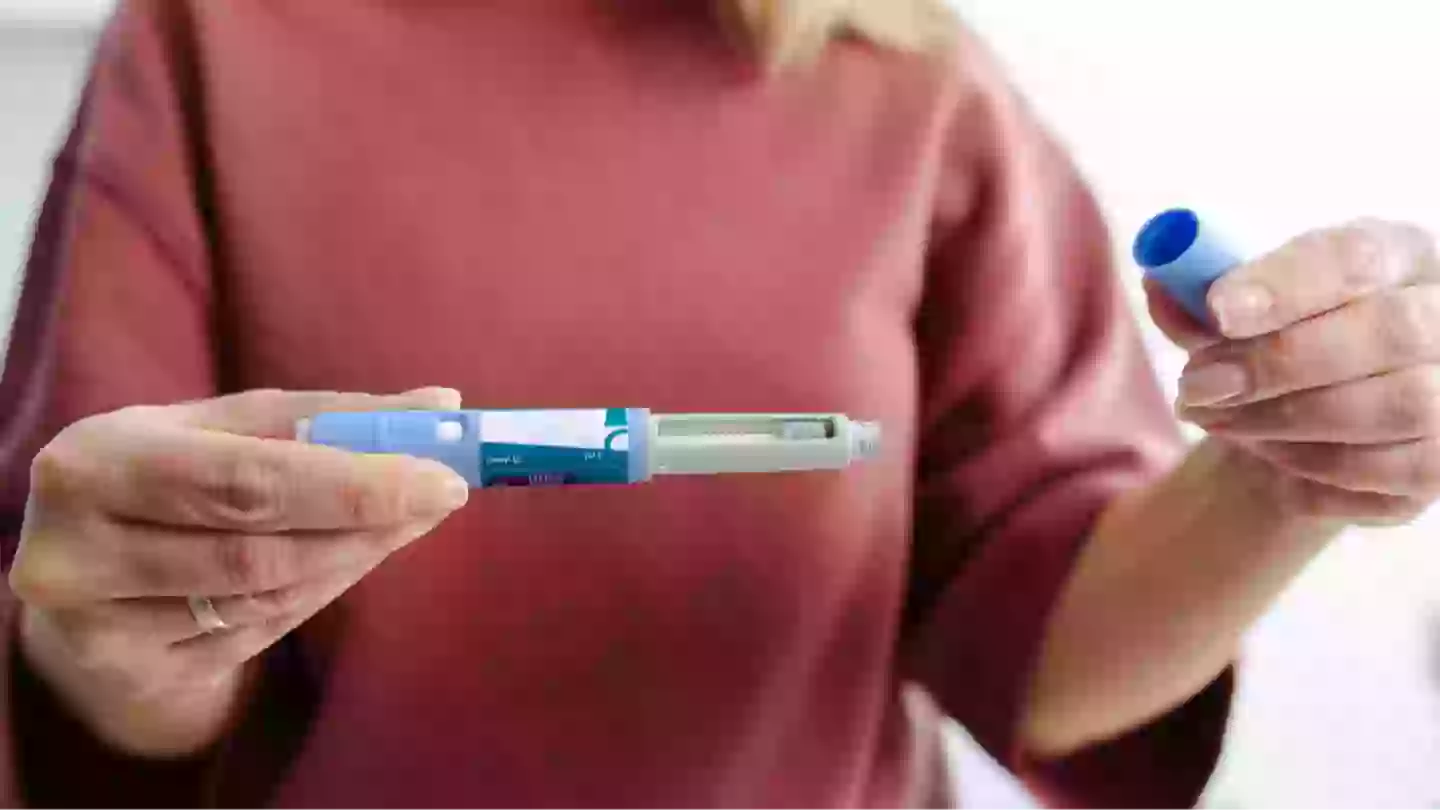An oral health professional has shed light on how GLP-1 medications such as Ozempic might affect dental health, following a surge in online inquiries regarding their impact on teeth.
GLP-1 is vital for controlling blood sugar, appetite, and digestion. While it is a naturally occurring hormone, medications utilizing it are commonly used to manage type 2 diabetes.
Though these drugs are primarily prescribed for diabetes, their effects on appetite and digestion have made them popular among those seeking to lose weight, even though the FDA has not approved Ozempic for weight loss purposes.
As people continue to investigate these medications and their effects, a simulation has demonstrated how Ozempic influences the body by ‘activating the part of the brain that makes you feel full, thereby reducing your appetite’.
Among the concerns people have about Ozempic is its potential impact on dental health. According to Google trend data reported by Hello!, there was a 216 percent increase in searches for ‘Ozempic + Teeth’ within just one week.
To address these issues, dentist Dr. Sofina Ahmed from Viva Dental spoke to the publisher regarding how GLP-1 medications might affect the mouth and teeth.
Dr. Ahmed highlighted symptoms such as dry mouth and increased sensitivity as potential side effects of these drugs, noting: “It can be a surprise for patients. They focus on weight loss and don’t realize how much it can affect oral health. But saliva, chewing activity, and hormonal balance all play a vital role in maintaining a healthy smile.”
She explained that GLP-1 medications might lead to decreased saliva production, leaving teeth susceptible to disease and decay.
“Without enough saliva, food particles and acids aren’t washed away. This creates the perfect environment for bacteria to thrive,” she elaborated.
A lack of sufficient saliva can also increase the likelihood of fungal infections and ulcers on the tongue, gums, and cheeks.

Users of GLP-1 medications have reported heightened pain when consuming extremely hot, cold, or sweet foods. If not addressed, Dr. Ahmed cautioned that these effects could ‘lead to enamel erosion or receding gums’.
The diminishing of gums, in turn, affects the overall appearance of one’s face.
“Fat loss in the cheeks and jawline can cause gums to shrink and smiles to look aged or sunken,” Dr. Ahmed explained.
Another consequence of GLP-1 medication use is dietary changes, including increased caffeine and low-carb intake, which can be detrimental to teeth. Dr. Ahmed noted: “Caffeine, protein fermentation and fewer fibrous foods create a more acidic environment. Acid weakens enamel and raises the risk of cavities and ulcers.”
Similarly, decreased chewing due to reduced eating can harm dental health. “Chewing stimulates saliva production and helps cleanse teeth naturally. Less chewing equals faster plaque build-up,” Dr. Ahmed stated.

To support patients using GLP-1 medications, Dr. Ahmed recommended consistently drinking water throughout the day and considering the addition of a sugar-free electrolyte tablet for absorption.
“A humidifier at night can also prevent overnight dryness,” she suggested.
She also advised using mints or chewing sugar-free gum to stimulate saliva production. A fluoride-rich toothpaste can be advantageous, and patients should consult professionals about prescription toothpaste if sensitivity or decay worsens.
To maintain healthy teeth, avoid highly acidic and sugary snacks, consider a night guard to prevent teeth grinding, and use probiotic lozenges or oral probiotics to promote healthy oral bacteria.
Most importantly, Dr. Ahmed emphasized informing your dentist about GLP-1 medication use, as it can affect treatment options and monitoring strategies.

